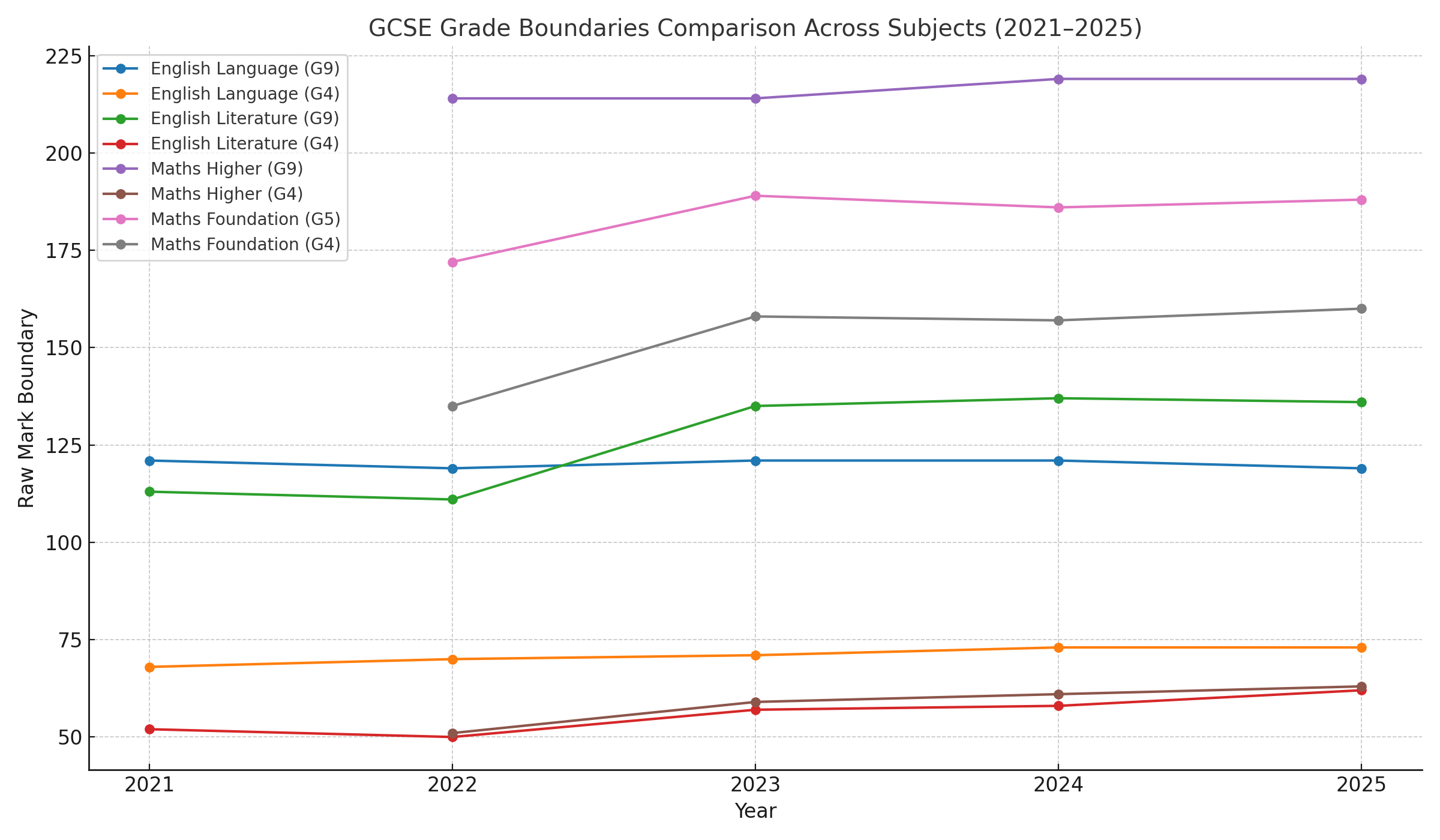GCSE Grade Boundaries: What the Last Five Years Tell Us

At Super Thinkers, we believe that knowledge is power. Understanding GCSE grade boundaries can help parents and students alike to set realistic targets, track progress, and prepare effectively for exams. Over the past five years, grade boundaries in English Language, English Literature, and Mathematics have shifted, reflecting changes in assessment and national performance.
What Are Grade Boundaries?
Grade boundaries are the minimum marks students need to achieve a particular grade. For example, if the Grade 4 boundary in English Language is 73 marks, then any score at or above this threshold secures at least a Grade 4 (a standard pass). Boundaries change slightly each year, depending on the difficulty of the exam papers and national performance.
English Language (2021–2025)
- Top grades (9–7) have remained steady or fallen slightly (by around 1–2%).
- Lower grades (5–4) have risen, with Grade 4 increasing by more than 7%.
This suggests that securing a pass in English Language has gradually become more demanding over the last five years, while the highest thresholds remain stable.
English Literature (2021–2025)
- Grade 9 jumped by over 20% between 2021 and 2025.
- All grade thresholds increased, with strong rises at both the top and middle grades.
English Literature has become tougher at every level, with students now required to achieve significantly higher raw marks for the same grades compared with 2021.
Maths Higher (2022–2025)
- Boundaries rose steadily across all grades.
- Grade 9 increased modestly (+2.34%), while Grades 4–7 saw larger jumps (up to +23.5%).
Maths Higher is seeing a tightening of standards, especially for mid-tier grades, meaning students must score more marks than before to achieve Grades 5–7.
Maths Foundation (2022–2025)
- All thresholds increased consistently.
- Grade 5 rose by almost 10%, while lower grades (1–2) increased by 15–18%.
Even at the Foundation level, expectations have risen, making it harder to secure a pass or strong pass compared to 2022.
What Does This Mean for Students?
- Passing Grades Require More Effort – Particularly in English Literature and Maths Foundation, students need noticeably higher raw marks compared to a few years ago.
- Consistency at the Top – English Language Grade 9 boundaries have stayed stable, showing that top performers remain unaffected.
- Rising Middle Tier – Grades 4–6 have seen the steepest rises, impacting students aiming for standard passes or mid-range results.

Super Thinkers’ Advice
- Focus on Foundations – With boundaries rising, it’s crucial to master core topics, especially in Maths and Literature.
- Practice Under Exam Conditions – Familiarity with timing and pressure helps bridge the small but essential gap between missing and hitting a boundary.
- Track Progress Against Boundaries – Knowing how close you are to the next grade helps motivate and target revision.
At Super Thinkers, we specialise in guiding students through these challenges. With expert tuition, tailored study plans, and ongoing support, we ensure every learner has the confidence and skills to excel—whatever the grade boundaries.
GCSE Grade Boundaries Are Rising – Is Your Child Ready?
Interested in supporting your child to excel in the face of rising GCSE grade boundaries?